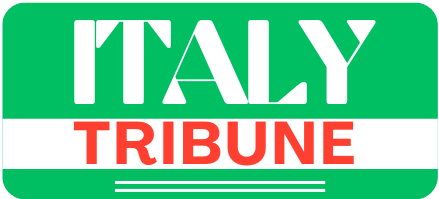At Italy Tribune, we believe journalism is more than reporting facts; it is about holding power accountable, exposing hidden truths, and giving a voice to those who cannot speak for themselves. In today’s digital age, where misinformation spreads faster than ever, watchdog journalism has become the guardian of transparency and fairness in society.
This form of journalism does not merely inform; it investigates, questions, and challenges authority. From uncovering corruption to defending human rights, watchdog journalism plays a vital role in maintaining democratic values. Italy Tribune proudly explores this tradition, tracing its relevance from historic print publications to modern multimedia platforms, ensuring that readers understand the importance of fearless reporting in shaping a just world.
More Related: Censorship in Media: Italy Tribune on Freedom and Control
Understanding the Essence of Watchdog Journalism
Watchdog journalism refers to reporting that actively investigates those in power, whether they are politicians, corporations, or institutions. Unlike daily news updates, which provide information about events, watchdog journalism digs deeper to reveal hidden stories.
It is a practice rooted in the responsibility journalists act as the “watchdogs” of society, protecting citizens from abuse of authority. Without it, democratic systems would be weakened, and the public would remain unaware of the decisions shaping their lives.
Historical Roots and Global Legacy
The origins of watchdog journalism can be traced back to the earliest newspapers, where journalists exposed corruption in monarchies and governments. Over the centuries, this role expanded, especially during major turning points in world history.
From groundbreaking investigative reports exposing financial scandals to war correspondents bringing the harsh realities of conflict into public view, watchdog journalism has repeatedly proven its power to drive reform. Today, while the tools have changed shifting from print to digital platforms the mission remains the same: uncovering the truth.
Why Watchdog Journalism Matters in a Digital Era
With the explosion of social media and online platforms, people now consume information at an unprecedented pace. However, speed often comes at the cost of accuracy. Fake news, manipulated data, and sponsored content threaten the integrity of information.
This is where watchdog journalism steps in. By conducting in-depth investigations, cross-verifying facts, and presenting unbiased stories, it combats misinformation. Readers today are not just passive consumers but active participants in shaping narratives, and watchdog journalism ensures they receive accurate and reliable information.
The Core Responsibilities of a Watchdog Journalist
Watchdog journalism is not an easy path. It requires courage, persistence, and an unwavering commitment to truth. The responsibilities include:
- Investigating hidden agendas behind policies or corporate decisions
- Protecting vulnerable groups by exposing injustices
- Ensuring transparency in governance
- Monitoring environmental, economic, and social issues
- Challenging propaganda and disinformation
Journalists who dedicate themselves to this work often face threats and resistance, yet their role is indispensable for preserving accountability.
Tools and Techniques that Drive Investigative Success
Modern watchdog journalism uses a wide range of tools to uncover the truth.
| Technique | Purpose |
| Data Journalism | Analyzing statistics, budgets, and public records to identify patterns |
| Freedom of Information | Requesting government documents to reveal hidden decisions |
| Multimedia Storytelling | Combining text, visuals, and audio for impactful reporting |
| On-the-Ground Reporting | Interviewing witnesses and experiencing events first-hand |
| Collaboration | Partnering with global journalists for cross-border investigations |
These tools ensure that watchdog journalism not only reports but also convinces audiences with evidence.
The Risks and Challenges in Watchdog Journalism
While this form of journalism is admired, it comes with challenges. Reporters often face political pressure, censorship, financial constraints, and even threats to personal safety.
In some regions, watchdog journalists are labeled as “troublemakers” simply for doing their job. Financial independence also remains an issue, as media outlets sometimes rely on sponsors who may not favor investigative reporting. Despite these obstacles, many journalists continue their work with dedication, knowing that silence would mean surrendering to injustice.
Inspiring Stories from the World of Watchdog Journalism
Throughout history, courageous journalists have unveiled scandals that shook entire nations. Whether exposing corruption in political systems, corporate frauds, or social injustices, these stories have changed policies, toppled regimes, and brought justice to victims.
At Italy Tribune, we emphasize these examples to inspire new generations of journalists. Every revelation, no matter how small, contributes to a stronger democracy and a more informed society.
Steps to Practice Effective Watchdog Journalism
For aspiring journalists and writers, practicing watchdog journalism requires a clear process.
Step One: Identify the Issue
Choose a topic that impacts society — governance, environment, or human rights.
Step Two: Gather Evidence
Collect documents, eyewitness accounts, and digital data.
Step Three: Verify Facts
Cross-check every piece of information to avoid errors.
Step Four: Present Objectively
Write or broadcast the story without bias, allowing facts to speak for themselves.
Step Five: Follow Through
Keep track of reactions, policy changes, and reforms after publication.
These steps transform reporting from basic storytelling into impactful watchdog journalism.
The Future of Watchdog Journalism
As technology evolves, watchdog journalism is expected to expand further into digital storytelling, data visualization, and interactive reporting. Artificial intelligence tools can assist in analyzing large datasets, while blockchain-based transparency systems could ensure authenticity of sources.
The heart of watchdog journalism, however, will always remain the same dedication to truth, fairness, and accountability.
FAQs About Watchdog Journalism
What makes watchdog journalism different from regular reporting?
Watchdog journalism goes beyond daily updates to deeply investigate power structures and expose hidden truths.
Why is watchdog journalism important in democracy?
It ensures leaders and institutions remain accountable, safeguarding citizens from misuse of authority.
Do watchdog journalists face risks?
Yes, they often encounter political pressure, censorship, and even threats, yet their work drives change.
Can digital tools strengthen watchdog journalism?
Absolutely. Data analysis, digital archives, and multimedia platforms enhance investigations and storytelling.
How can aspiring writers practice watchdog journalism?
By researching deeply, verifying facts, and reporting objectively on issues that impact society.
Conclusion
At Italy Tribune, we believe watchdog journalism is not just a profession but a responsibility to society. It stands as a safeguard against corruption, injustice, and misinformation, ensuring that citizens remain informed and empowered.
As the world moves faster and information becomes more complex, the role of watchdog journalism only grows stronger. It is a reminder that truth matters, and those who pursue it, no matter the cost, are the true guardians of democracy.




